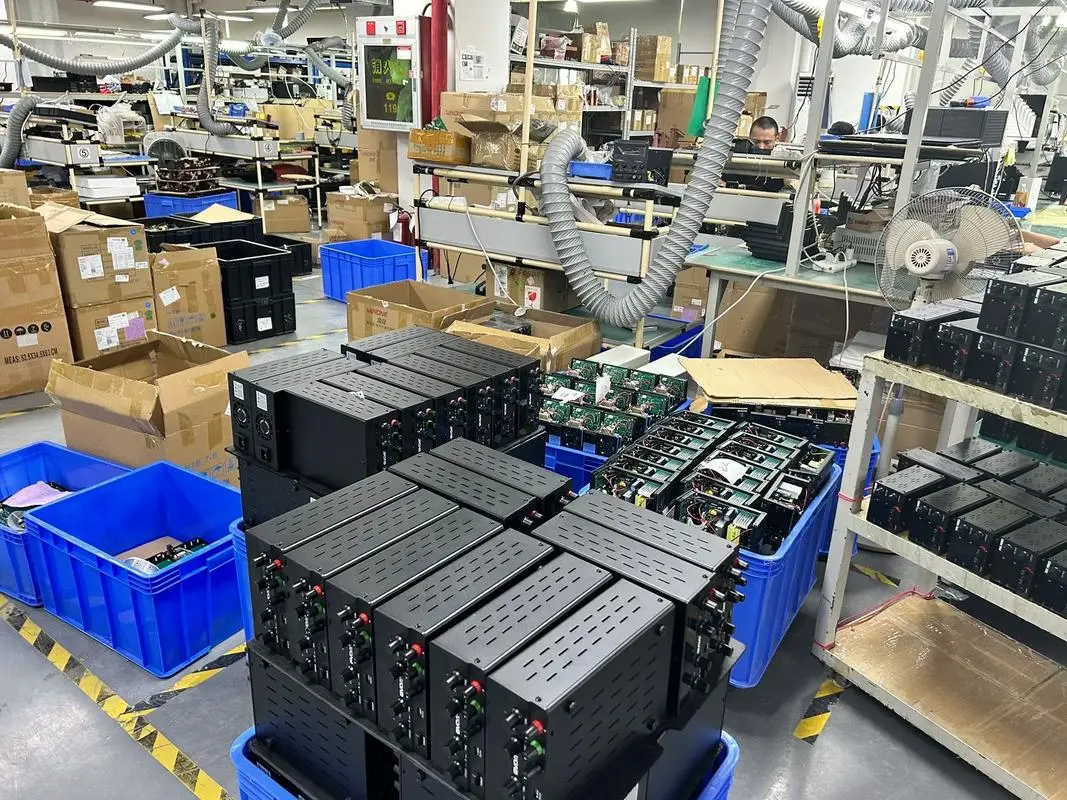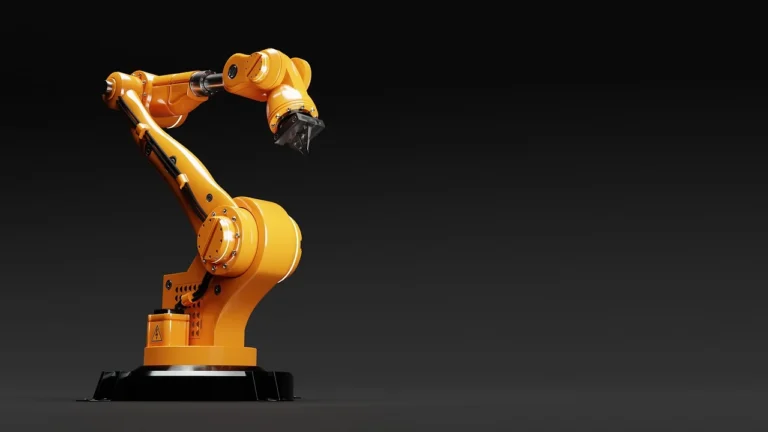We help the world since 2012

Power Supply VS Power Module
Just started learning about modular power supply colleagues may be confused about the power module or modular power supply and power supply, sounds like a power supply, how is irreplaceable? Today CHONDA’s engineering on this issue to talk about.
Figure out the problem before, must be the concept of clear.
1# The concept of power supply and modular power supply
1.1 What is a power supply?
In layman’s terms, the power supply refers to the ability to convert some form of energy into electrical energy and can supply power to the electronic device device or device, it is to ensure the normal operation of the electronic device infrastructure to ensure the normal operation of electronic products.
The implication is that where equipment needs to operate properly power supply is essential equipment, such as cell phone chargers used by everyone is a simple power supply, the principle of its work is to convert 220V AC into 5V DC, just change a form of electrical energy, but the power supply is a form of electrical energy.
Just change a form of electrical energy, belongs to a power conversion assembly, if the phone has no power, must be through the phone charger to the phone to supplement the power to ensure that the phone works normally.
1.2 What is a power module?
Power module is a modular device that integrates various parts of power supply together, which has the function modules of pure power supply and power management, and corresponds to different input voltages and outputs corresponding stable power supply voltages.
It usually includes transformer, rectifier circuit, filter circuit, voltage regulator circuit, protection circuit and display circuit. For example, CHONDA TECHNOLOGY is a professional manufacturer of AC-DC power module and DC DC power module.
2# The characteristics and differences between power supplies and power modules
2.1. Characteristics
Power supply is characterized by stable output, high load capacity, low noise and high efficiency. In electronic products, power supply is a very important component, its quality and performance is directly related to the stability and reliability of electronic products. Power supply (Power Supply) is usually a stand-alone device, it has its own housing, can be installed separately in the system or equipment external, through the connection line for the equipment to provide electrical energy. For example, we commonly see desktop power adapters, power supplies for computers, and so on.
Power modules, on the other hand, are characterized by small size, high power density, high reconfigurability, and high reliability. Power modules are widely used in some electronic products and are an important means of improving the integration and functionality of electronic products.
Power Module (Power Module) is a small power converter built into a device or system. It usually does not have a shell, but is directly integrated in the electrical equipment or circuit boards, is responsible for specific circuits or components to provide a stable power supply. It is commonly used in industrial equipment, embedded systems, communication devices, and robots, where high integration and compact design are required.
2.2 Differences
The difference between a power supply and a power module is that a power supply is usually used separately from a power supply unit, and is an independent device used to address the power needs of electronic products.
Power modules, on the other hand, are integrated power supply units that can be directly applied to electronic products through wiring, soldering, etc. to provide the required power supply voltage and current.
In short, power supplies are generally external and independent, while power supply modules are mostly built-in solutions for powering equipment internally.
3# The functions and advantages of power supply modules include the following aspects
3.1 Functions
1. Electrical Energy Conversion
The main function of a power supply module is to convert incoming electrical energy (usually DC or AC) into a stable voltage or current output required by the device. Common types of power modules include AC-DC modules and DC-DC modules, which are used for the conversion of AC to DC or the conversion between different DC voltages, respectively.
2. Voltage Regulation
Power modules have a built-in voltage regulation function, which can stabilize the input voltage to a fixed voltage or current required by the equipment, preventing voltage fluctuations from causing damage to the equipment and ensuring stable equipment operation.
3. Electrical isolation
Certain power supply modules are equipped with electrical isolation functions that can isolate input and output circuits to ensure safety between different circuits and prevent signal interference. Electrical isolation is especially important in medical, communication and industrial applications.
4. Protective Functions
Most power modules have a variety of protective functions, such as over-current protection, over-voltage protection, over-temperature protection, and short-circuit protection, to prevent damage to the power module or connected equipment under abnormal conditions.
3.2 Advantages
1. Small and compact
The power supply module structure is highly integrated and takes up little space, making it suitable for embedding inside equipment. This makes it ideal for application scenarios that require space saving, such as embedded systems, portable devices, and compact industrial automation equipment.
2. Ease of Integration
Power supply modules are designed as standardized components that can usually be mounted directly on printed circuit boards (PCBs). This design simplifies the circuit design of the device, enabling engineers to develop and prototype more quickly, while reducing the use of external components.
3. High Efficiency
Many power supply modules utilize switching power technology, which is more efficient and can convert more input energy into an effective output, resulting in less energy loss and heat generation. This is particularly important for applications that require efficient energy transfer, especially in battery-powered equipment.
4. High Reliability
Modular power supplies are usually tightly designed and tested for high reliability. Their built-in protection mechanisms can effectively respond to electrical anomalies, reducing the risk of equipment damage and improving the overall stability of the system.
5. Customizable
The power supply module can be adjusted according to specific application scenarios, providing different input/output voltages, power ranges and packaging forms. Such flexibility makes the modular power supply can be widely used in industry, communications, aerospace, medical equipment and other fields.
6. Electromagnetic compatibility (EMC) excellent
Many power modules are designed with good electromagnetic shielding and filtering to ensure that the power module does not produce excessive electromagnetic interference (EMI) during operation, thereby reducing the impact on other sensitive electronic equipment, in line with the strict electromagnetic compatibility requirements.
7. Expandability
For equipment requiring different power levels, modular power supplies can usually be easily expanded or replaced by simply selecting the appropriate power level or model, without redesigning the entire circuit.
4# Application areas of power supply modules
Industrial automation
In industrial automation systems, power supply modules are widely used to power various controllers, sensors, actuators and other devices. These systems usually have high requirements for the reliability, stability and safety of the power supply, and the compact design, stable output and protection functions of power supply modules are very suitable for these scenarios.
Application examples: PLC (programmable logic controller), industrial robots, automated production line equipment.
Communication equipment
Communication equipment, such as routers, switches, base stations, etc., usually need a stable power supply to ensure the continuity of signal transmission and reliability of equipment operation. Modular power supply can provide efficient DC power supply for these equipments, and at the same time, it has electromagnetic compatibility (EMC), which reduces the interference to the signal.
Application examples: fiber optic communication equipment, wireless base stations, satellite communication terminals.
Consumer electronics
In consumer electronic devices, such as smart home products, portable devices, cell phone chargers, etc., the high integration and miniaturized design of power supply modules is particularly suitable for embedding, saving equipment space, while ensuring efficient power supply.
Application examples: smart speakers, smart door locks, tablet PCs, cell phone fast chargers.
Medical equipment
Medical equipment requires high security and stability of power supply. Modular power supplies are usually designed with isolation, which can ensure the safety between the equipment and the patient and avoid electrical failure. In addition, their reliability and stability can ensure the accurate operation of medical equipment.
Application examples: vital signs monitors, MRI equipment, portable ultrasound equipment, patient monitors.
Automotive Electronics
The electronic systems of modern automobiles such as electric vehicles and hybrid vehicles have a high demand for power supplies, especially power supply modules used in on-board electrical appliances, control systems, and power management systems. Due to the limited space, the compact design of the module power supply can effectively save the vehicle interior space, and has high efficiency and anti-interference ability.
Application examples: in-vehicle entertainment systems, battery management systems, autonomous driving systems, in-vehicle chargers.
Aerospace
In the aerospace field, power supply modules are usually used to provide stable power for aircraft instrumentation, communication equipment, navigation systems, and so on. Due to the strict weight and space constraints of aerospace equipment, the lightweight and high efficiency of power modules are particularly critical. In addition, these scenarios also require power modules with ultra-high reliability and resistance to harsh environments.
Application examples: aircraft electronic systems, satellite communication equipment, UAV power management systems.
Data centers and servers
Data centers and servers require large-scale and continuous power supply, and power modules provide stable DC power for them. Efficient power modules not only reduce energy consumption, but also ensure high reliability of servers and storage devices, avoiding data loss or downtime caused by power problems.
Application examples: data center power management, cloud computing servers, network storage devices.
Renewable energy systems
In solar power generation systems, wind power generation systems and other renewable energy equipment, power supply modules are used to convert the power generated by power generation equipment to meet the requirements of the use of electrical energy, and to provide stable output for the energy storage equipment or power grid. The high efficiency and flexibility of modular power supplies make them ideal for these applications.
Application examples: photovoltaic inverters, wind power control systems, energy storage devices.
Smart Grid
In smart grid systems, power modules are used to power equipment in monitoring and control systems to help smart meters, data collection terminals, and communication gateway equipment operate efficiently. Power modules can adapt to the variability of the power grid and provide stable power for end devices.
Application examples: smart meters, power distribution automation equipment, data collectors.
Military and Defense
Military systems often require power modules to work stably under extreme conditions (e.g., high temperature, low temperature, strong vibration, etc.), so highly reliable and durable power modules are needed. In addition, military equipment usually has special requirements for electromagnetic compatibility, power supply modules are also designed to prevent interference with military communications and control systems.
Application examples: military communications equipment, radar systems, tactical consoles.
Summary
Power supplies and power modules are essential core components of electronic products, ensuring the proper functioning of equipment and enhancing its reliability and competitiveness in the marketplace.
In contrast, power modules stand out for their smaller size, higher power density and greater flexibility, showing a wider range of applications.




